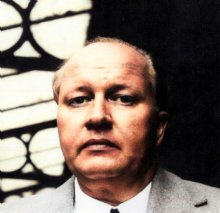Introduction
"The Lost Son and Other Poems" is a collection of verse by American poet Theodore Roethke, published in 1948. The collection is significant for its expedition of Roethke's partnerships with his family, particularly his dad, and the environment. Throughout the rhymes, Roethke makes use of dazzling images of nature as well as the greenhouse his daddy had to explore his inner emotional landscape, often merging the two to create effective metaphors for human experiences, consisting of loss, depression, love, and renewal. The poems are significant for their introspective tone, their strength of sensation, and also their innovative use of language as well as images.
The Lost Son
The title poem, "The Lost Son", is extensively taken into consideration among Roethke's masterpieces as well as works as the centerpiece of the collection. It is a long, five-part meditation on the poet's excruciating sensations of expatriation, alienation, and loss complying with the death of his father. The rhyme is written in totally free knowledgeable, with a combination of long as well as brief lines, as well as integrates dazzling descriptions of the environment, particularly the greenhouse, which works as an icon for both his daddy's globe and his own sensations of seclusion.
The poem starts with the poet's recollection of the "warm, environment-friendly world" of the greenhouse, where he "drank and also consumed,/ More than the black-capped heron,/ More also than the sand-hole,/ Where the carrion snaked away". Right here, the poet connects the greenhouse with an Edenic heaven, a location where he felt near his papa as well as the environment. Nevertheless, this ideal memory is quickly eclipsed by the poet's sensations of exile as well as loss, as he understands, "Now I am heavy with globes". The poem's structure mirrors this journey of self-discovery; each area dives deeper into the poet's psyche, arriving at the devastating awareness in the final section that he can not totally understood or browse the world without his father.
Throughout the poem, the poet makes use of the images of the greenhouse as well as the natural world to explore his sensations of loss and also exile. He compares himself to numerous kinds of vegetation as well as animals, having a hard time to locate significance in a globe without his dad. These metaphors are frequently touched with violence, despair, and wishing for return, as in the lines, "The stone-crop injures,/ My cool fingers are boring,/ I creep for my narcissus".
Other Poems in the Collection
In "The Lost Son and Other Poems", Theodore Roethke discovers numerous motifs throughout the collection, frequently returning to the images of his dad's greenhouse. The collection feels linked by this reoccuring symbol, which stands for both the heat of the natural world as well as the pain of human connections.
A number of poems within the collection stick out, closely related to the styles offered in "The Lost Son". "Root Cellar", for instance, employs vibrant summaries of the dark, chaotic setting listed below his dad's greenhouse. In this poem, Roethke uses the cellar as a metaphor for the darker elements of human experience, consisting of sexuality, degeneration, and death.
In "Child on Top of a Greenhouse", the audio speaker remembers a memory from childhood years when he got on top of a greenhouse and also felt simultaneously triumphant and also terrified. The association of anxiety and also exhilaration produces a stress that mirrors the poet's ambivalent sensations towards the greenhouse as both a resource of motivation and also a sign of emotional chaos.
Conclusion
The 1948 verse collection "The Lost Son and Other Poems" by Theodore Roethke is a haunting and also intimate exam of the poet's partnerships with his papa, nature, and his very own psychological landscape. Roethke's use of brilliant, natural imagery, especially that of the greenhouse, acts as an effective allegory for human experiences and also emotions, including loss, clinical depression, love, and rebirth. Throughout the collection, the poet discovers the depths of his own mind with honesty, intensity, and an exceptional linguistic inventiveness that makes this work an example of 20th-century American poetry.
The Lost Son and Other Poems
A collection of poems exploring childhood memories, meditations on mortality, and quests for self-discovery
Author: Theodore Roethke
 Theodore Roethke, a prominent American poet born in Saginaw, Michigan, shaped by nature, family, and personal struggles.
Theodore Roethke, a prominent American poet born in Saginaw, Michigan, shaped by nature, family, and personal struggles.
More about Theodore Roethke
 Theodore Roethke, a prominent American poet born in Saginaw, Michigan, shaped by nature, family, and personal struggles.
Theodore Roethke, a prominent American poet born in Saginaw, Michigan, shaped by nature, family, and personal struggles.